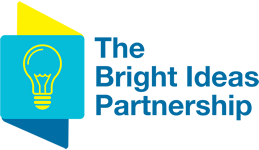The Big Lottery Fund Reaching Communities Fund closed to applications quite suddenly on the 15th January. It has now reopened to applications. So, what has changed?
Well, the outcomes themselves remain unchanged, although they have been re-worded. They are now:
- Bring people together and build strong relationships in and across communities
- Improve the places and spaces that matter to communities
- Enable more people to fulfil their potential by working to address issues at the earliest possible stage.
They state that they are interested in supporting organisations that are:
- People led – meaningfully involving the people you’re working with in the development and delivery of your activity.
- Strengths based – making the most of the skills that already exist in communities.
- Connected – understanding what other relevant organisations are doing and developing good working relationships.
Clearly, consulting with local organisations, members of the community and beneficiaries, to really understand what your beneficiaries and local area needs, is still an essential step in making a successful application to Reaching Communities.
There does appear to be a strong focus on new approaches, with the Lottery stating “we’re interested in your original and creative ideas for achieving your mission”. This may mean a departure from Reaching Communities’ long-term support of existing projects. They also explicitly list ‘activities that replace government funding’ as an exclusion from funding, which will be to the detriment to the many organisations who lose statutory funding every year for key projects, who previously could have applied to Reaching Communities for support. Furthermore, the website now states grants of ‘over 10,000’ are available, with no upper limit given, which may indicate a desire to give out smaller grants overall.
The main change however, is to the application process. The Big Lottery wants to make it easier for smaller organisations to apply, so have done away with the two-stage application form process. In its place, applicants need to contact the Lottery, to give them a brief outline of what you want to do, either through an online form, a phone call, a video, or an email. A local Funding Officer, who may cover one or two counties, will then get in touch to find out more about your idea (and will help smaller organisations to develop their ideas). Once the Funding Officer has gathered the information needed, this will be presented to a Big Lottery Fund panel of staff who will decide whether the idea is something the Big Lottery can fund. Only if your idea is accepted at this stage will you be asked to submit a full, written, proposal.
The Funding Officer will be on hand to help you put your proposal together and give guidance on the areas that you need to cover. Finally, your proposal will be assessed at a Big Lottery Fund decision-making panel, alongside a report by the relevant Funding Officer, where a decision will be made on whether or not to award funding.
The previous two stage application process took around 8 months from start to finish. It is unclear how long the new process will take, but the Big Lottery think it will be “a lot quicker than the previous process”.
So what are our thoughts on this new process? It’s is great that smaller charities will be provided with extra support and help, which may help ‘level the playing field’ with larger organisations. We have always suggested to clients that they contact the Big Lottery before applying, as initial contact with local Grants Managers has always been helpful. Finally, only needing to complete one written application form is a welcome move, especially for smaller organisations with limited time and resources.
However, we do have some concerns. The increased local focus will put a lot of decision-making into the hands of local Funding Officers. Our experience is that many are great, with good local knowledge and an understanding of what is needed. However, some are less good, and may not have a good understanding of the work local organisation undertake.
In addition, a lack of transparency and consistency has already started to emerge during the transition period. In our history, we have submitted 43 Lottery applications, and have a 67% success rate at first stage and a 96% success rate at stage 2, raising £9m to date. We have always found the Big Lottery’s processes clear and fair, and you were always given reasons for rejection. We fear this will now be a more subjective process: a very recent rejection from one of our clients stated that the Big Lottery Central Team had deemed the project fundable, but the local Funding Officer had decided not to fund it. We would urge the Big Lottery to make sure that the new decision-making process remains clear and fair to new applicants.
If you would like to find out more about Reaching Communities, and apply, visit https://www.biglotteryfund.org.uk/funding/programmes/reaching-communities-england.
If you would like help with developing your project idea, how to make the ‘best’ contact with the Big Lottery, and applying to the Reaching Communities programme please do get in touch.

